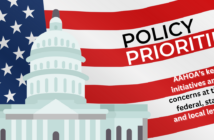Source: HospitalityNet
By Martin H. Orlick
February 4, 2021
We previously warned the hotel industry of the inevitable explosion of ADA website lawsuit filed against hotels. Well, that time is here.
In 2020, we saw a surge of lawsuits filed against those in the hotel industry, alleging the failure to comply with 28 C.F.R. Section 36.302 (e) of the Americans with Disabilities Act (ADA), which requires hotels to list their accessible features on their websites as well as on the websites of online travel agencies (OTAs) such as Travelocity, Orbitz, hotels.com, etc. We expect this surge of lawsuits to continue well into 2021.
Whether you are a national “flag” or the owner of a small portfolio of hotels, the 2010 ADA’s, C.F.R. Section 36.302 (e) applies to your hotel properties and websites. This section of the ADA has been effective since March 15, 2012 and requires hotels to describe accessible features in hotels and guest rooms offered through its reservations services in enough detail to reasonably permit individuals with disabilities to assess independently whether a hotel or guest room meets their accessibility needs.
Although most hotel systems have implemented policies, practices and procedures to ensure they comply with Section 302 (e), many others have not adequately complied with the requirements. These requirements can be quite tricky to implement and it is a very tight balance to comply with the rule while not opening up your property to ADA litigation.
Why the surge in lawsuits?
Beginning in the last quarter of 2020, we saw a dramatic uptick in the number of ADA website lawsuits, even outpacing Title III architectural barrier cases. Despite the COVID-19 pandemic, plaintiffs’ ADA law firms have filed more than 100 Section 302 (e) cases against California hotels. These cases have been filed against a growing number of long-time clients of the firm by a handful of plaintiffs who claim they intend to visit these hotels once COVID-19 travel restrictions are lifted. We see many of the familiar plaintiffs who seem to have shifted their attention from architectural barrier cases to Section 302 (e) lawsuits.
There appear to be several key reasons for this shift. First, many hotels have not complied with Section 302 (e) after nearly 9 years. Second, in the world of high speed, high volume ADA litigation, it is far easier and far cheaper for plaintiffs to bring ADA website cases than to pay to retain an ADA consultant to physically inspect every hotel they want to sue. To perform pre-filing Rule 11 due diligence for Section 302 (e) cases, one need only visit the defendant’s website or the websites of their OTAs to quickly test for compliance. This savings drops directly to the bottom line and speeds up the filing of complaints.




